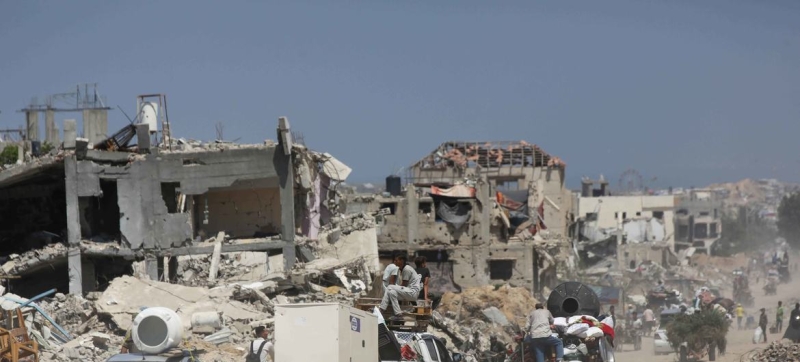
Desalination plants, hospitals and utilities are unable to operate in Gaza due to lack of fuel. Top stories of the day | Monday: Ukraine, Gaza, SDG, Gambia UN
The main news of the day in the UN and in the world: attacks on civilian infrastructure and new casualties in Ukraine, the escalation of the conflict in Gaza, the ministerial segment of the High-Level Political Forum on Sustainable Development, the ban on female genital mutilation in the Gambia.
War in Ukraine
U.N. humanitarian workers on the ground say military action on Monday and over the weekend resulted in more civilian casualties in Ukraine’s front-line regions. On Saturday, about 30 civilians, including children, were injured as a result of an attack on a railway in the Kharkov region. Fierce fighting continued in the Donetsk region. In the city of Mirnograd, the strikes killed and injured civilians, including a child, and damaged civilian infrastructure. Aid workers have mobilized emergency assistance to those affected.
Situation in Gaza
UN humanitarian agencies and their partners continue to provide assistance victims of Saturday’s strike on al-Mawasi in southwest Gaza, which is estimated to have killed at least 90 people and wounded about 300. Meanwhile, Israeli airstrikes reportedly hit the southern and central areas of the enclave on Monday. Due to the lack of fuel in Gaza, desalination plants, hospitals and public services cannot operate. The World Health Organization (WHO) warned that lack of access to food, water, sanitation and basic health services in the enclave makes people more vulnerable to disease.
Sustainable Development
The Sustainable Development Goals promised a better future for hundreds of millions of people around the world, but they were in jeopardy halfway through the 2030 target. This is stated in a statement by the UN Secretary-General, timed to coincide with the opening of the ministerial segment of the High-Level Political Forum. Unless the international community takes effective action, eight percent of the world’s population, or 680 million people, will still suffer from hunger by 2030. The Chairman of the UN General Assembly, Dennis Francis, warned about this when speaking at the forum. The United Nations (UNICEF), the United Nations Population Fund (UNFPA), WHO and UN Women, as well as the UN High Commissioner for Human Rights, in a joint statement commended The Gambia for its decision to maintain its ban on female genital mutilation . They commended activists, civil society organizations and religious groups making efforts to stop the practice. Cutting or removing external genitalia causes serious physical and psychological harm to girls and women. The procedure can lead to infections, birth complications and post-traumatic stress disorder, the statement said.
